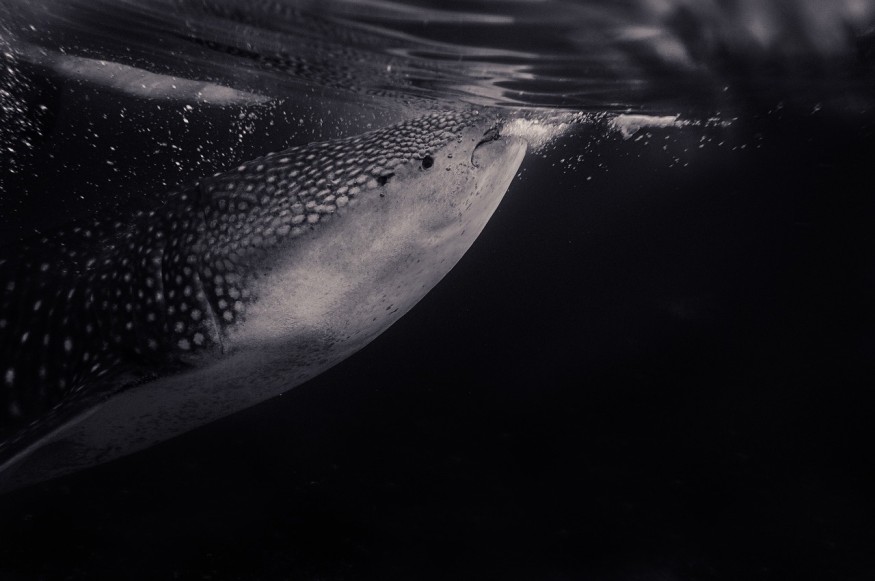Whale sharks are filter feeders whose diet includes krill, small fish, and plankton. But a recent discovery reveals that they also eat plants, making them the largest omnivore in the world that could grow up to 18 meters long.
Fish biologist Mark Meekan says in a statement that previously thought facts about these giant marine creatures might not be true at all after this discovery.

The World's Largest Omnivore is a Shark
Whale sharks have been observed feeding on krill at the Ningaloo Reef in Western Australia and are mostly thought to be carnivores, given their diet.
But when researchers analyzed some biopsy samples taken from whale sharks at the reef, they found that these fish were eating a lot of plants, Science Daily reported. Meekan said that this discovery makes scientists rethink everything thought about the whale shark diet and what they are doing in the open ocean.
He added that the largest animals on land have always been herbivores, but the study adds to evidence that animals in the sea were feeding one step up in the food chain by eating krill and small fishes. The team believes it could be the result of evolution that made land and marine animals what they are.
The team collected samples of possible food sources for whale sharks, such as plankton and seaweeds, to find out the type of food these giant fish consume. Then they compared amino acids and fatty acids in those samples to those biopsy samples from whale sharks.
It revealed some compounds of the brown seaweed called Sargassum that is abundant in the reef. Meekan pointed out that whale sharks must have evolved to digest some of the Sargassum that is going in their guts when they come to the reef to feast on the krill. But aside from the seaweed, they also found traces of algae on the biopsy samples.
Finding Something Else in Whale Shark Poo
Dr. Andy Revill, an organic biochemist at CSIRO Oceans and Atmosphere who analyzed the whale shark tissue, said that they used the compound-specific stable isotope analysis method to conduct the study that helped them identify the diet of animals that provide them with energy and growth.
According to Study Finds, biological oceanographer Dr. Patti Virtue from the University of Tasmania admitted that it was surprising to see the biochemical signature of the whale shark as it is very strange because they do not have the stable isotope commonly found in a krill-feeding animal. Although, their poo did show they were eating krill but not just metabolizing much of it.
Revill explained that stable isotopes from the diet of the whale shark are incorporated into the body and reflect what they use to grow, revealing that they are indeed omnivores.
They discussed their findings in full in the paper titled "The World's Largest Omnivore Is a Fish," published in the journal Ecology of the Ecological Society of America.
Check out more news and information on Sharks in Science Times.
© 2026 ScienceTimes.com All rights reserved. Do not reproduce without permission. The window to the world of Science Times.











